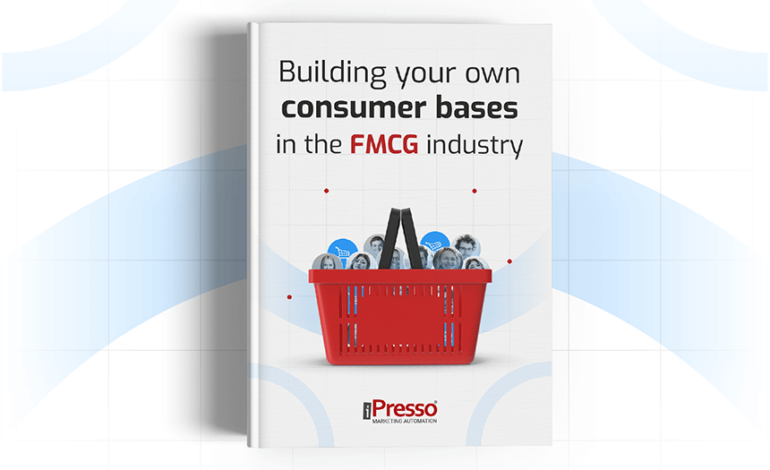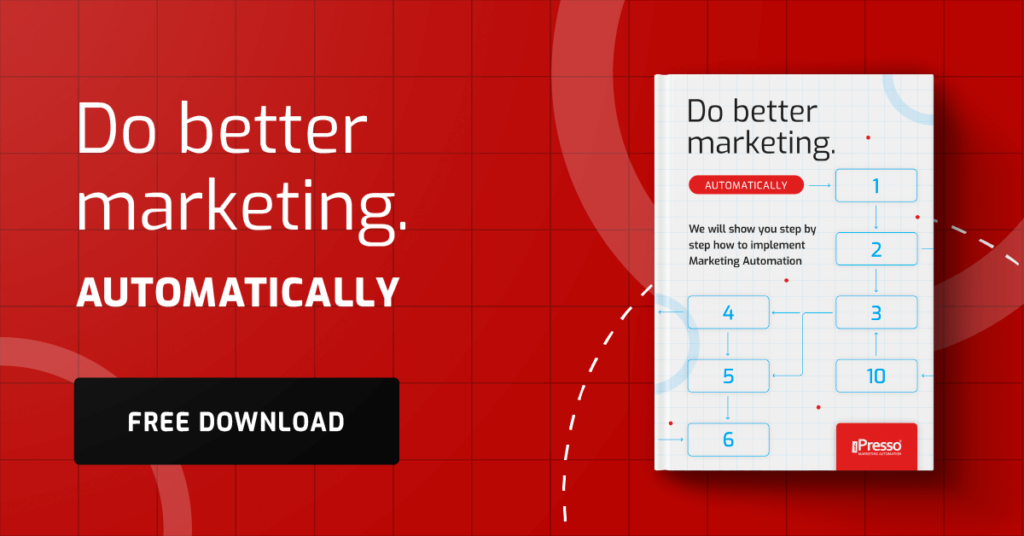How to use customer data to personalize marketing automation scenarios: 3 examples

Marketing automation scenarios can streamline your marketing efforts and make them far more effective. However, to make the most of this solution, you need to have as much data about your customers as possible. In this post, we want to show you three examples of how different businesses can utilize marketing automation scenarios to reach their customers more effectively.
Marketing automation scenarios constitute the most important feature of our platform. It’s also one of the most versatile features, as MA scenarios allow you to benefit from other tools on our platform, such as:
- Different communication means
- Remarketing
- Personalizing communication
- Gathering customer feedback
- And more!
It’s a very flexible tool, too! You can use on of our predefined templates or create your scenarios from scratch. And those scenarios can comprise many different elements, stages, and reactions from your company. As a result, you keep the communication flowing, making it easier to engage your customers in communication with your brand. Marketing automation scenarios are also fantastic when it comes to loyalizing your customers.
With that in mind, we want to show you three scenarios in which this feature can come in handy. We’ve made sure to make those scenarios both different and common, so that many readers can use them or inspire from them. Let’s get right to it!
Example 1: Personalized recommendations for an online store
If you run an e-commerce business, you surely understand how important it is to provide customers with products and offers that are tailored to their interests and past purchases. If you do so, you can not only increase the chances of getting more orders, but you can also increase AOV (average order value) and improve CX (customer experience).
However, if you want to benefit from personalized recommendations, you need two types of customer information:
- Their characteristics (e.g., demographic)
- Their previous purchases
Such a combination allows you to provide customers with recommendations that are likely to resonate with them, and that’s what you want to achieve.
Personalized product recommendations can also help you with upselling and cross-selling. That’s why past purchases are so important. If you know that a given customer purchased a new bike sometime in the past, you can get back to them with an offer of some accessories to this bike, e.g., bags or mudguards (oftentimes, we realize we need them after the purchase). But to do so, you need to keep track of what each person bought and when.
Example 2: Loyalizing customers for a SaaS company
SaaS companies heavily rely on their customers and regular subscriptions. One way of keeping these subscriptions on is by staying in touch with your customers/users and providing them with useful knowledge. If you run a SaaS company, you can regularly reach out to your userbase through different means of communication.
Here are a few ideas for you:
- Provide your customers with useful knowledge that’s related not just to your tool/platform but the niche that you operate in as well. Position yourself as a trustworthy source of knowledge.
- Offer additional services and features to customers who use just the basic version of your platform.
- Organize special promotions for the higher pricing options, thus encouraging people to spend more money with you in the future.
- Send a monthly newsletter with carefully selected market and company news; make your newsletter interesting!
To do so, you need to understand your customers, know which services they use and what they are expecting from your platform (customer surveys are crucial in the SaaS industry). When you know all this, you can devise marketing automation scenarios that are tailored to your target audience.
Each of these four ideas we mentioned above can be easily turned into a personalized marketing automation scenario that runs on auto-pilot with little to no involvement on your side.
Example 3: Regular updates for a travel company
The last scenario we want to analyze works in many different sectors where staying in touch with customers is important. The travel industry is certainly one of them. Suppose you have a customer who recently purchased a trip abroad. Such a person would surely be happy if they received all the important information in a timely manner from you. Here, you have tons of marketing opportunities!
For example, travel companies can:
- Recommend places to visit (e.g., one-day trips)
- Offer additional services (e.g., renting a car)
- Send travel updates (it would be nice to automatically get your boarding pass on your phone, right?)
- Distribute special offers to other places
Here, again, you can create several marketing automation scenarios that are tailored to those purposes. This way, you can benefit from diverse marketing and sales opportunities, but also gain your customers’ trust (traveling, especially abroad can be stressful; keeping your customers informed will surely help you build good relations with them).
What do all these three scenarios have in common? They all require data about your customers and their activity with your brand (especially past purchases). Naturally, there are many ways to gather all the necessary customer information, but today, we want to show you two tools that are available within iPresso (which makes it very easy to integrate them with marketing automation scenarios).
2 tools to gather and process customer data
iPresso offers two tools that allow you to gather and manage customer data in your company:
- Contact database management: It’s a basic yet flexible tool that allows you to keep all customer information in one place. You can also attach personalized attributes to each contact depending on your company’s needs and business profile. What’s really important for MA scenarios, you can also track the behavior and actions taken by the monitored contacts.
- Customer data platform: This tool allows you to track customer data from many sources (internal, external, natively integrated systems). CDP updates data as quickly as possible, usually in real time, and allows you to track even the behavior of anonymous customers (based on their activity stored in cookies).
If you want to give marketing automation scenarios a shot, you can start for free with a 30-day trial access to our platform. And that’s what we encourage you to do – see for yourself how much time you can save when using marketing automation!
Start here (no credit card needed)



